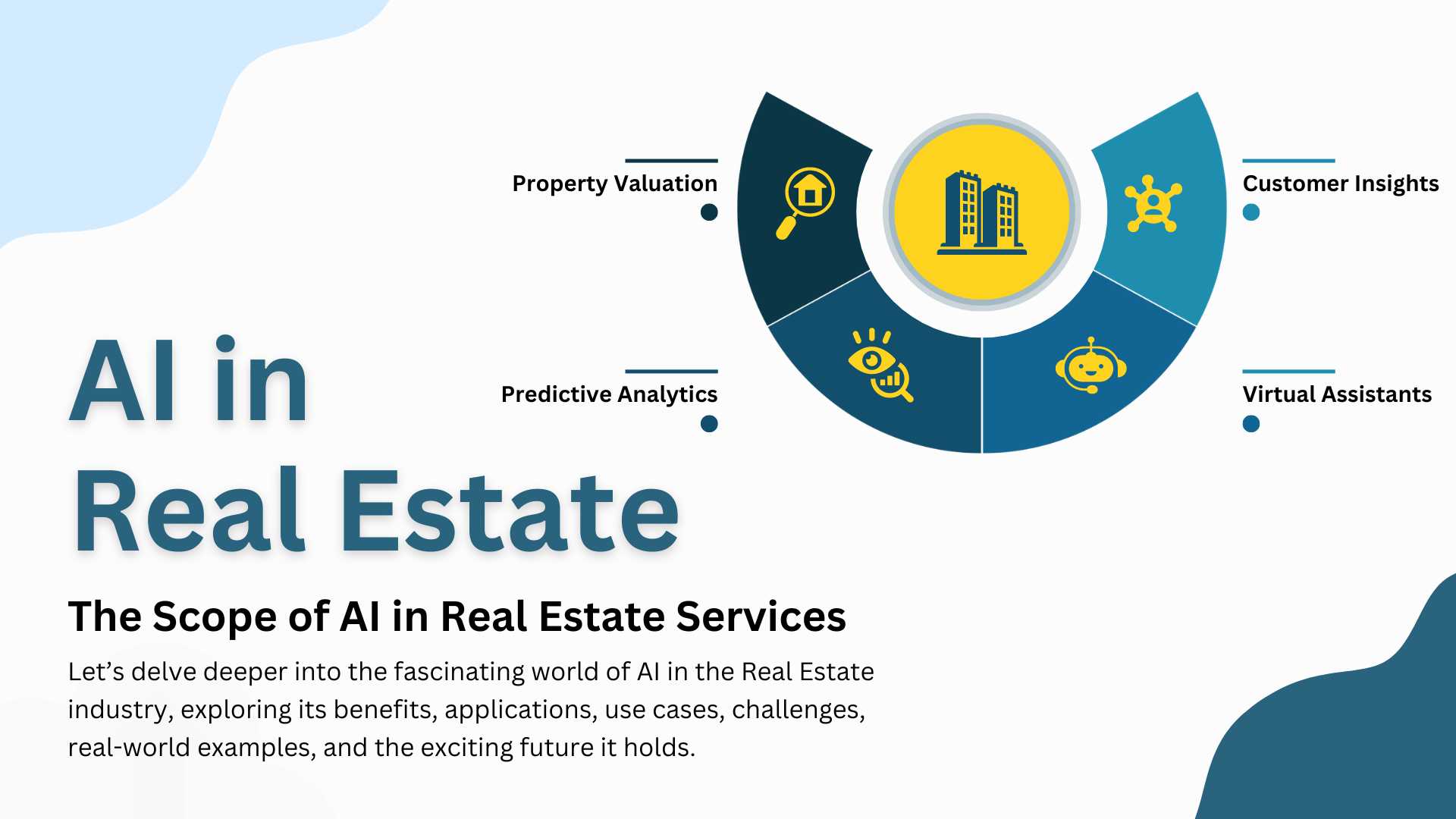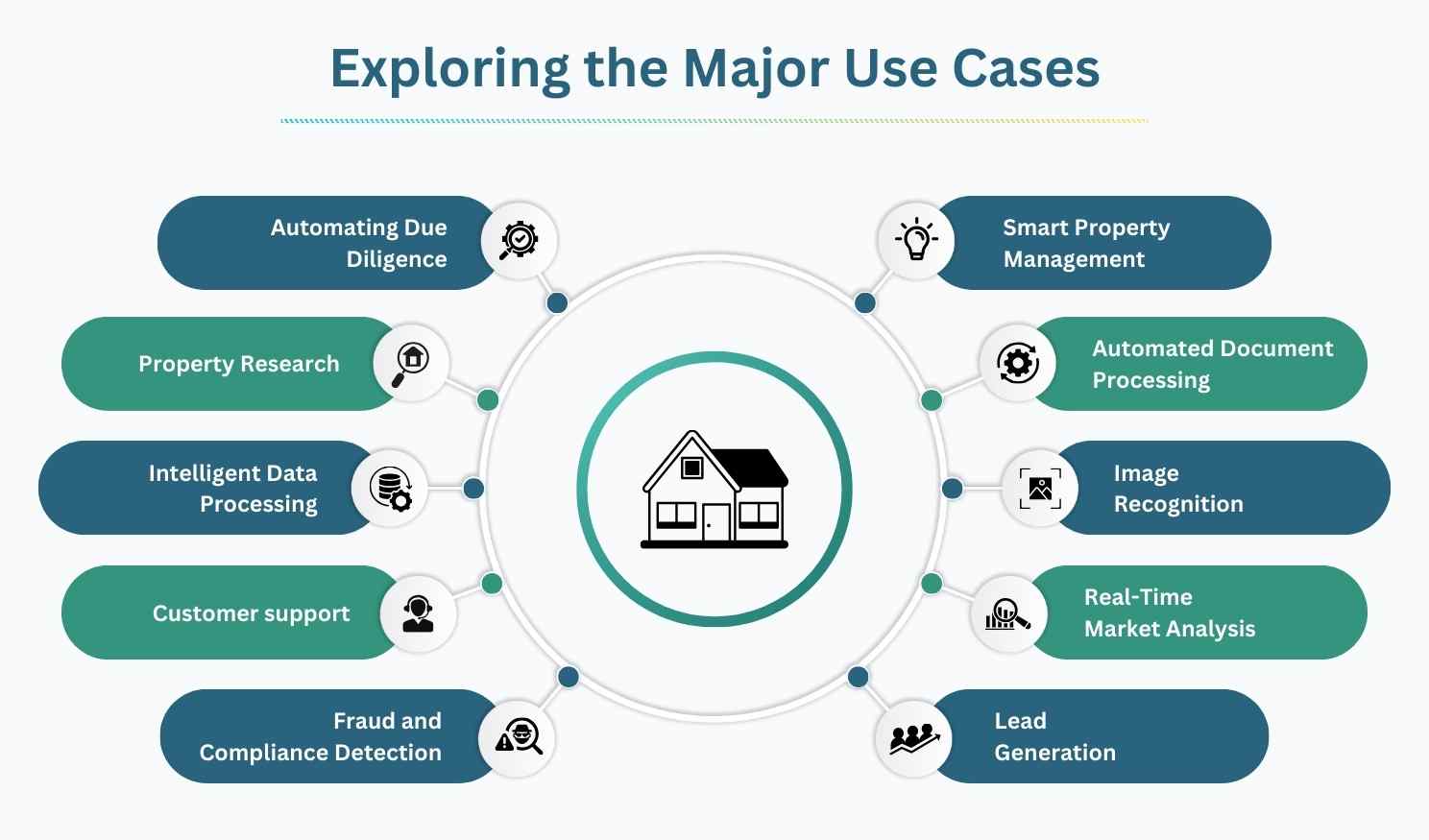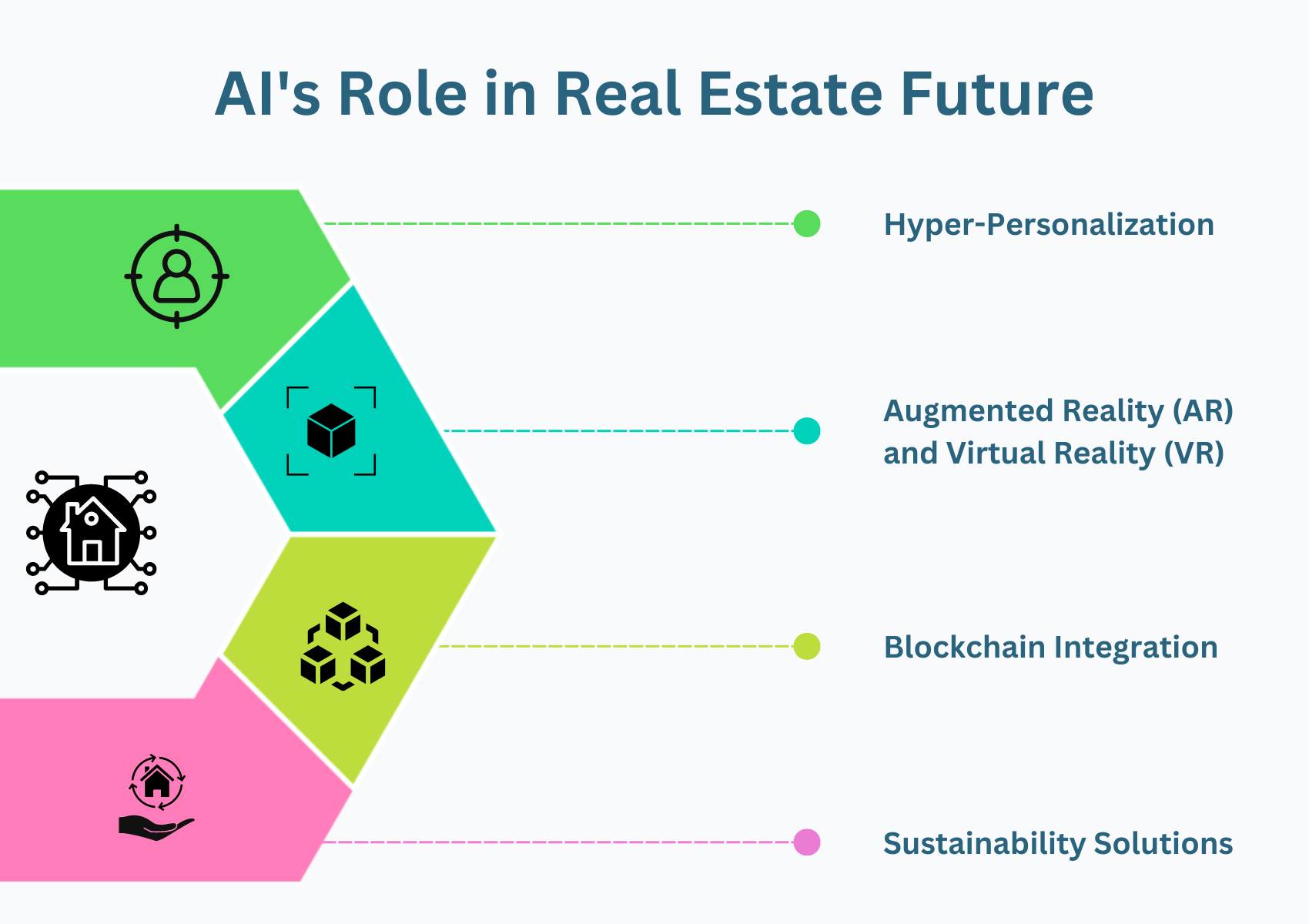
Do you want to experience a world where finding your perfect property isn’t a marathon of endless listings and open houses. Imagine how it would feel if there is a system that can predict market trends, personalize your search, and even virtually remodel a fixer-upper before you invest a dime. This is the exciting new frontier powered by Artificial Intelligence (AI). Buckle up, because we’re about to dive into the revolution that’s transforming the way we buy, sell, and manage real estate.
Benefits of AI in Real Estate Industry
Usage of AI technology in real estate has showcased its own benefits with time and as we learn more about them, it only goes out to say that AI is changing the dynamics rapidly.
1. Improved Decision Making
The world of Real Estate demands smart decision-making, awareness about the market, and a tap on the trends all the time.
AI-powered analytics provide valuable insights into market trends, property values, and investment opportunities, empowering stakeholders to make informed decisions.
2. Enhanced Customer Experience
Real Estate is for individuals to invest in and gain benefits over time. Basically, customer satisfaction is the driving force in this industry as well, just like any other product or service industry!
With AI technology in Real Estate, personalized recommendations and virtual tours powered by AI technologies enhance the buying or renting experience for customers, leading to higher satisfaction rates.
3. Efficiency and Cost Savings
With real estate prices skyrocketing by the day, when it comes to such transactions, every penny saved is a penny earned.
With the merger of Artificial Intelligence and Real Estate, automation of repetitive tasks such as paperwork processing, property valuation, and lead generation reduces operational costs and accelerates processes.
4. Risk Mitigation
The pace at which the world is changing is unmatched and more rapid than ever before. With great rewards come great risks and with AI in real estate investment, risk analysis can be a secure layer to the transaction processes.
AI algorithms can analyze vast amounts of data to identify potential risks such as fraud or property defects, helping mitigate financial losses for buyers and investors.
According to Global Industry Analysis And Forecast by Maximize Market Research, Artificial Intelligence (AI) in the Real Estate Market is expected to reach US $ 1335.89 Billion by 2029.
Use Cases of AI in Real Estate Industry
The real estate industry is undergoing a significant transformation driven by artificial intelligence. AI is more than a science fiction; it’s here, reshaping processes, enhancing experiences, and bringing a new level of efficiency to the way we interact with property. Let’s check out the use cases of AI in Real Estate Industry.
1. Smart Property Management
AI-enabled IoT devices monitor building systems, predict maintenance needs, and optimize energy usage, leading to cost savings and improved tenant satisfaction.
2. Automated Document Processing
AI algorithms extract relevant information from legal documents, contracts, and lease agreements, reducing manual effort and minimizing errors in paperwork.
3. Image Recognition
AI-powered software analyzes property images to identify features, detect defects, and assess curb appeal, assisting realtors in property listings and marketing.
4. Real-Time Market Analysis
AI platforms aggregate and analyze real-time data from multiple sources such as listings, social media, and news feeds to provide up-to-date market insights and investment opportunities.
Challenges of AI in Real Estate Industry
While AI offers exciting possibilities for the real estate industry, there are significant hurdles to overcome before it can reach its full potential. Here’s a closer look at some of the key challenges that the AI in Real Estate is facing:
1) Data Quality and Privacy
AI algorithms rely on vast amounts of data, and ensuring data accuracy, relevance, and privacy compliance remains a challenge for real estate companies.
2) Integration Complexity
Integrating AI solutions with existing systems and processes requires significant investment in technology infrastructure, training, and change management.
3) Bias and Fairness
AI models may perpetuate biases present in historical data, leading to unfair outcomes in decision- making processes such as loan approvals or property valuations.
4) Regulatory Compliance
Real estate transactions are subject to complex regulations and legal frameworks, and ensuring AI systems comply with industry standards and guidelines poses challenges for stakeholders.
Future of AI in Real Estate Industry
The future of AI in real estate holds immense promise, with advancements in machine learning, computer vision, and natural language processing driving innovation across the industry. Some exciting developments to look forward to including:
a) Hyper-Personalization
AI algorithms will deliver highly personalized experiences for buyers, renters, and investors, based on individual preferences, behavior, and lifestyle.
b) Augmented Reality (AR) and Virtual Reality (VR)
AI-powered AR and VR technologies will revolutionize property viewings, allowing users to visualize spaces and customize designs in real-time.
c) Blockchain Integration
AI and blockchain technologies will enable secure and transparent transactions, streamline property management, and facilitate fractional ownership models.
d) Sustainability Solutions
AI will play a crucial role in optimizing energy efficiency, reducing carbon footprint, and promoting sustainable practices in real estate development and management.
Applications of AI in Real Estate Industry
Feeling overwhelmed by the housing market? Numbers, negotiations, endless searching – it can all feel like a maze! But what if there was a secret weapon to simplify things?
Enter AI! That’s right, artificial intelligence is shaking things up in real estate. It’s helping people find their dream homes faster, score better deals, and even predict future market trends. Imagine smarter valuations, personalized recommendations, and uncovering hidden gems – all with the help of AI. Ready to unlock the future of real estate? Let’s dive into the amazing applications of AI that are transforming the industry!
1) Property Valuation: AI-driven algorithms analyze historical sales data, market trends, and property attributes to provide accurate valuations, saving time and reducing human error.
2) Predictive Analytics: AI models forecast market trends, demand-supply dynamics, and property appreciation rates, aiding investors and developers in strategic decision-making.
3) Customer Insights: AI-powered CRM systems analyze customer preferences, behaviour patterns, and interactions to personalize marketing campaigns and improve customer engagement.
4) Virtual Assistants: AI chatbots provide instant responses to customer queries, schedule property viewings, and guide prospects through the buying or renting process, enhancing efficiency and accessibility.
Examples of AI in Real Estate
The real estate industry is undergoing a transformation fuelled by artificial intelligence (AI). AI is automating tasks, streamlining processes, and personalizing experiences for both buyers and sellers. Here’s a glimpse into how AI is changing the game:
1. Zillow’s Zestimate
Zillow utilizes AI algorithms to estimate property values, providing users with instant valuations based on property characteristics and market trends.
2. Compass’ AI-Powered CRM
Compass’ real estate platform integrates AI-driven CRM capabilities to provide agents with personalized insights and predictive analytics for better client engagement.
3. Matterport’s 3D Tours
Matterport I uses AI and computer vision to create immersive 3D virtual tours of properties, allowing buyers to explore spaces remotely and visualize layouts accurately.
4. Opendoor’s Automated Transactions
Opendoor’s leverages AI algorithms to automate the buying and selling process, enabling quick and hassle-free transactions for homeowners.
Final Note
In conclusion, AI is revolutionizing the real estate industry by enhancing decision-making, improving efficiency, and transforming the customer experience. While challenges such as data quality and bias remain, the future of AI in real estate looks promising, with innovative applications and technologies reshaping the way we buy, sell, and manage properties. As we embrace these advancements, let’s harness the power of Artificial Intelligence to create a more transparent, efficient, and sustainable real estate ecosystem for all stakeholders.



